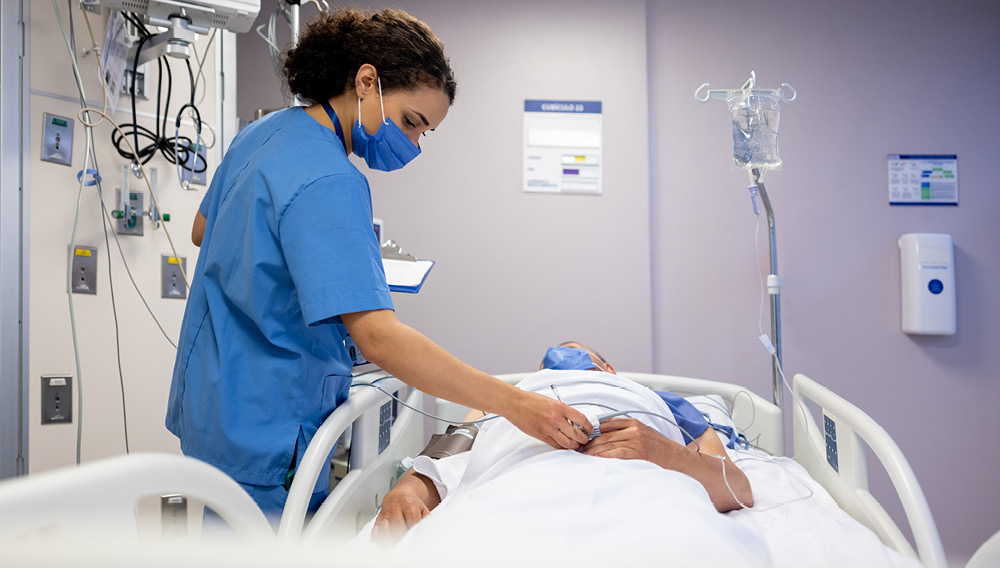5 Nursing Specialties a Bachelor’s in Nursing Can Get You

A bachelor’s in nursing equips aspiring nurses with a foundation of knowledge and skills, paving the way for myriad career opportunities in health care. Through a curriculum that includes coursework and clinical experience, graduates develop critical thinking, leadership, and patient care abilities. This degree prepares individuals for traditional nursing roles in hospitals and clinics and opens doors to specialized fields like pediatrics, geriatrics, oncology, and public health. A bachelor’s in nursing can also help nurses apply for leadership positions.
Let’s explore the world of nursing and see what different careers might be suitable for you.
What Levels of Nursing Are There?
There are several types of nurses, and the nursing career path you want to pursue depends on what level of education you attain. Nursing levels fall into three categories defined by education requirement: no degree, degree, and advanced degree.
No Degree
Some nursing positions don’t require a degree. These include licensed practical nurses (LPNs), or licensed vocational nurses (LVNs), as they are called in California and Texas, as well as certified nursing assistants (CNAs). These nurses are required to complete certificate programs and pass a certification exam, like the National Council Licensure Examination for Practical Nurses (NCLEX-PN) for LPNs and LVNs.
Degree
Being a registered nurse (RN) requires a degree. They have an associate degree or a bachelor’s degree and have completed the National Council Licensure Examination for Registered Nurses (NCLEX-RN). RNs make up the majority of nursing professionals and often seek specialization and any further certification in areas like oncology, pediatrics, geriatrics, and more.
Advanced Degree
With an advanced degree like a master’s degree in nursing or a Doctor of Nursing Practice (DNP) and by taking area-focused licensing exams, nurses can become advanced-practice registered nurses (APRNs). APRNs include certified registered nurse practitioners (CRNPs) and certified registered nurse anesthetists (CRNAs). Many APRNs also pursue careers in nurse administration, health policy, or independent practice.
5 Nursing Specialties You Can Get with a Bachelor’s in Nursing
As mentioned, nurses who obtain a bachelor’s degree become RNs and can also choose a specialization. This affords them more employment opportunities and a higher earning potential. Here are a few of the many types of nurses you can become with a bachelor’s in nursing.
ICU Nurse
An intensive care unit (ICU) nurse cares for patients with severe illnesses and injuries. These RNs handle complex medical equipment, administer medications, and monitor vital signs to detect changes in a patient’s condition. They work in a fast-paced, high-stress environment and collaborate with physicians, respiratory therapists, and other health care team members to develop individualized care plans. These nurses also support patients and their families, helping them deal with critical illnesses.
Neonatal Nurse
A nurse who cares exclusively for premature or ill newborn infants is a neonatal nurse. These nurses work primarily in neonatal intensive care units (NICUs) and monitor vital signs, administer medications, and operate medical equipment designed for infants. These nurses also offer parents critical emotional support and education, helping them understand their baby’s condition and care needs. The role of this kind of nurse is both challenging and rewarding because they play a crucial part in the early stages of life.
Oncology Nurse
Patients diagnosed with cancer need special, compassionate care. Nurses who are part of an oncology team and help provide comprehensive cancer treatment to cancer patients are oncology nurses. They administer chemotherapy, radiation, and other treatments; manage symptoms and side effects; and monitor patients’ health. They also help individuals and their families understand the diagnosis, treatment options, and care plans. They offer emotional support, counseling, and resources to help patients deal with the challenges of cancer.
Home Health Nurse
A home health nurse provides medical care and support to patients in their homes. These nurses help patients who are managing chronic illnesses, are recovering from surgery, or are elderly, disabled, or otherwise unable to travel to health care facilities. They administer medications, perform patient assessments, monitor vital signs, provide wound care, and help with daily activities. Home health nurses work with physicians to develop and implement care plans and offer education and support to patients and their families. Their work allows patients to receive high-quality, personalized care while remaining in a familiar, comfortable environment.
Surgical Nurse
A health care professional who provides care to patients before, during, and after surgical procedures is a surgical nurse, also known as a perioperative nurse. These nurses assist surgeons and anesthesiologists by preparing the operating area and ensuring all equipment is sterilized and ready. During surgery, they monitor the patient’s vital signs, assist with surgical instruments, and respond quickly to complications. They also provide preoperative and postoperative care, which includes preparing patients for surgery, educating them about the procedure, and offering postsurgical care.
With a bachelor’s degree in nursing, you’ll enter the health care field with a wide variety of nursing career paths to choose from, setting yourself up for a rewarding and beneficial future.



